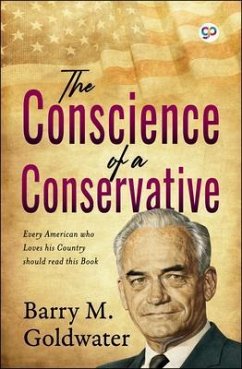
Civil Government in the United States Considered with Some Reference to Its Origins (eBook, ePUB)
Enriched edition. Exploring the Foundations of American Governance
Kommentar: Ellsworth, Dorian / Redaktion: Good Press
Versandkostenfrei!
Sofort per Download lieferbar
0,49 €
inkl. MwSt.
Weitere Ausgaben:

PAYBACK Punkte
0 °P sammeln!
In "Civil Government in the United States Considered with Some Reference to Its Origins," John Fiske presents a comprehensive examination of the principles and structures of American governance. The book is characterized by Fiske's eloquent prose and analytical depth, effectively intertwining historical context with philosophical inquiry. Through a meticulous exploration of constitutional frameworks, Fiske elucidates the evolution of civil government in the United States, offering insights into its democratic underpinnings and the social contract theory, which shaped the nation's identity in t...
In "Civil Government in the United States Considered with Some Reference to Its Origins," John Fiske presents a comprehensive examination of the principles and structures of American governance. The book is characterized by Fiske's eloquent prose and analytical depth, effectively intertwining historical context with philosophical inquiry. Through a meticulous exploration of constitutional frameworks, Fiske elucidates the evolution of civil government in the United States, offering insights into its democratic underpinnings and the social contract theory, which shaped the nation's identity in the wake of revolution. John Fiske (1842-1901), a prominent American philosopher and historian, was deeply influenced by the intellectual currents of his time, particularly the notions of evolution and progress. His background in history and philosophy allowed him to dissect complex political ideas and present them in a manner accessible to a broad audience. Fiske's commitment to understanding American ideals, coupled with his belief in democracy, propelled him to articulate the importance of government as a living entity shaped by its citizens and history. This book is essential for anyone seeking to grasp the intricacies of American governance and its underpinnings. Fiske's work not only serves as a foundational text for students of political science but also engages general readers interested in the philosophical roots of contemporary civil society. His nuanced analysis remains relevant, prompting critical reflections on the nature of democracy and governance in today's political landscape. In this enriched edition, we have carefully created added value for your reading experience: - A succinct Introduction situates the work's timeless appeal and themes. - The Synopsis outlines the central plot, highlighting key developments without spoiling critical twists. - A detailed Historical Context immerses you in the era's events and influences that shaped the writing. - A thorough Analysis dissects symbols, motifs, and character arcs to unearth underlying meanings. - Reflection questions prompt you to engage personally with the work's messages, connecting them to modern life. - Hand-picked Memorable Quotes shine a spotlight on moments of literary brilliance. - Interactive footnotes clarify unusual references, historical allusions, and archaic phrases for an effortless, more informed read.
Dieser Download kann aus rechtlichen Gründen nur mit Rechnungsadresse in A, B, BG, CY, CZ, D, DK, EW, E, FIN, F, GR, H, IRL, I, LT, L, LR, M, NL, PL, P, R, S, SLO, SK ausgeliefert werden.













